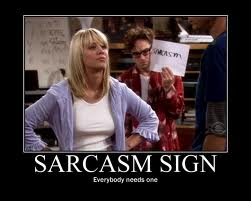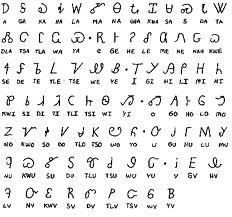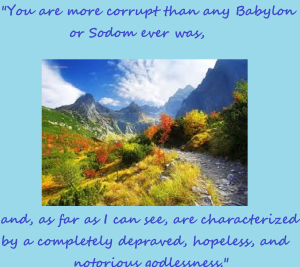If you think about it, it’s silly that people count in base ten. Yes, it’s convenient because we happen to have ten fingers, but it’s inconvenient in numerous other ways. For example, although 1/2 and1/4 and 1/5 and 1/10 can be easily expressed by decimals, other common fractions like 1/3 and 1/6 and 1/8 are just weird if you try to write them in any other form. To give a less abstract example, the amount of time that I spend at work is measured according to a decimal system. That means that each 0.01 hour of work is 36 seconds, which is a kind of random unit of time. On some level, the human race is clearly aware that units of twelve are logical. The year has twelve months, a foot has twelve inches, and many products are sold in groups of twelve. Yet we still insist upon counting in base ten.
 I think it says something about the selfish nature of humanity that we just assume that numbers are meant to be used in base ten simply because we have ten fingers. The human hand, according to our subconscious thought process, is clearly the standard by which we are supposed to measure everything in existence. No source of authority and no rational point of view outranks the supremacy of the human hand. Or something like that. But, mathematically speaking, there are better ways to count.
I think it says something about the selfish nature of humanity that we just assume that numbers are meant to be used in base ten simply because we have ten fingers. The human hand, according to our subconscious thought process, is clearly the standard by which we are supposed to measure everything in existence. No source of authority and no rational point of view outranks the supremacy of the human hand. Or something like that. But, mathematically speaking, there are better ways to count.
The short and simple way to say this is just to insist that base twelve is better than base ten because twelve has more factors than ten. But I’m going to back up a couple steps and ramble about some other things first. In all fairness, I must acknowledge that there’s a book I’m currently reading (How Acceptance of a Duodecimal (12) Base Would Simplify Mathematics by F. Emerson Andrews, copyright 1935 and 1944) that basically says everything that I’m saying in this blog post, and I’m sort of drawing from that book in writing this. But I also would like to point out, just for the sake of being a know-it-all, that none of the information or ideas I’m repeating here were new to me. These were all things I had heard, read, and thought about a long time before I happened to notice that book on the library bookshelf and was drawn in by its awesomeness.
The first thing about which I want to ramble is that even the tally mark system is pretty cool. We couldn’t count very high if it wasn’t for the clever construct of splitting numbers into handy units. If you count on your fingers, you only have two sets of five at your disposal, and you’re going to lose count pretty quickly once you get past ten. And if you try to count by writing down one mark for every unit, that’s not going to improve matters much. But by sorting those individual units into groups of five and then counting fives, you can count an awful lot higher. There’s no particular reason that five has to be the base used or that the notation method has to be tally marks as we know them; it’s the system of individual units and larger group units that is so clever and useful. Even though we take that system completely for granted, it’s pretty awesome when you think about it.
 Early forms of number notation were basically always tally-mark-type systems. Even Roman numerals are really just a glorified form of tally marks. You’ve got the individual unit written as I, the group of five units written as V, the group of ten units written as X, and so forth and so on. As an added bonus, numbers could be written in a more concise way by putting a smaller numeral in front of the greater numeral to indicate that the smaller unit is to be subtracted from the bigger unit rather than added onto it. For example, nine isn’t IIIIIIIII or VIIII because that’s kind of hard to read. It would be easy to accidentally confuse VIIII with VIII. So nine is IX, which means I less than X. So the Roman numeral system definitely had its benefits, but it still is of the same caliber as tally mark systems, and it still is really bad for doing arithmetic. (Quick, what’s MCDXXIV plus XXVII?)
Early forms of number notation were basically always tally-mark-type systems. Even Roman numerals are really just a glorified form of tally marks. You’ve got the individual unit written as I, the group of five units written as V, the group of ten units written as X, and so forth and so on. As an added bonus, numbers could be written in a more concise way by putting a smaller numeral in front of the greater numeral to indicate that the smaller unit is to be subtracted from the bigger unit rather than added onto it. For example, nine isn’t IIIIIIIII or VIIII because that’s kind of hard to read. It would be easy to accidentally confuse VIIII with VIII. So nine is IX, which means I less than X. So the Roman numeral system definitely had its benefits, but it still is of the same caliber as tally mark systems, and it still is really bad for doing arithmetic. (Quick, what’s MCDXXIV plus XXVII?)
But then the world was revolutionized by the numeral zero, which is the awesomest thing ever invented by humanity with the possible exception of that time when some random person thought of the idea of grinding up coffee beans and filtering hot water through them. Of course, the concept of “none” had always existed and there were ways of expressing the quantity of “none” in words. But there was no numeral zero as we use it now, and so place value didn’t work. It’s difficult to attribute the origin of zero to a specific time or place, because various cultures had various different ways of mathematically denoting zero-ness. But the significant advancement was the use of place value that was made possible by the use of the numeral zero, and that came from India and then gradually became commonly used in Europe during the medieval period. It wasn’t until the 16th century that the current system for writing numbers finished becoming the norm.
I think we can all agree that the Hindu-Arabic number system is much easier to use than Roman numerals. It’s easier to look at 1040 and 203 and know right away that they add up to 1243 than to look at MXL and CCIII and know that they add up to MCCXLIII. And it isn’t hard to add 48 and 21 in your head and get 69, but adding XLVIII and XXI to get LXIX is a little messy. A numerical system that relies on place value is inherently simpler to use than a system that doesn’t.
But there’s still that whole thing about base ten. To say that we count in base ten means that ten is the number that we write as 10. 10 means one group of ten plus zero ones. 12 means one group of ten plus two ones. 176 means one group of ten times ten, seven groups of ten, and six ones. But if, for instance, we counted in base eight, then 10 would mean one group of eight and no ones, which is 8 in base ten. 12 would mean one group of eight and two ones, which is 10 in base ten. 176 would mean one group of eight times eight, seven groups of eight, and six ones, which is 126 in base ten. If that sounds complicated, it’s only because we’re so used to base ten. We instinctively read the number 10 as ten without even thinking about the fact that the 1 in front of the 0 could refer to a different number if we were counting in a different base.
I’m not really advocating for getting rid of base ten, because it would be impossible to change our whole system of counting overnight. It took centuries for Hindu-Arabic numerals to replace Roman numerals in Europe, and switching to a different base would be an even bigger overhaul. Base ten is a very familiar system and it would just be confusing for everyone to suddenly change it, not to mention the fact that everything with numbers on it would become outdated and mathematically incorrect. So I’m perfectly content to stick with base ten for the most part, but I still think it’s worth pointing out that base twelve would technically be better. And this brings me to my actual point, which is why exactly base twelve is the best of all possible bases.
It goes without saying that the only feasible bases are positive integers. But I’m saying it anyway just because I am entertained by the notion of trying to use a non-integer as a base. It is also readily apparent that large numbers don’t make good bases. Counting and one-digit arithmetic are basically learned by memorization, and the larger the base is, the more there is to memorize. But small numbers don’t make good bases, either, because it requires a lot of digits to write numbers. Take base three, for instance. Instead of calling this year 2013, we’d be calling it 2202120. (Disclaimer: it’s entirely possible that I made an error. That’s what happens when I use weird bases.) And it wouldn’t be a good idea to use a prime number as a base. Even though I happen to be fond of the number seven and have said before that the people on my imaginary planet count in base seven, I realize that’s weird. (That is, counting in base seven is weird. It’s completely normal that I have an imaginary planet that uses a different mathematical system.) In base ten, we have a convenient pattern; every number that ends in 5 or 0 is divisible by 5, and any number that doesn’t end in 5 or 0 is not divisible by 5. That pattern works because 5 is a factor of 10. Using a prime number as a base would complicate multiplication and division because we wouldn’t have useful patterns like that.
So the numbers that would work relatively well as bases are eight, nine, ten, and twelve, and maybe six, fourteen, fifteen, and sixteen, if we want to be a little more lenient about the ideal size range. Eight and sixteen win bonus points for being 23 and 24, which is nice and neat and pretty, and nine and sixteen win bonus points for being squares. (Squares are cool, y’all) But twelve is the real winner here, because its factors include all of the integers from one to four. That means that it’s easily divisible by three and four as well as by two, and a multiplication table in base twelve would have lots of handy little patterns. Every number ending in 3,6,9, or 0 would be divisible by 3; every number ending in 4, 8, or 0 would be divisible by 4; every number ending in 6 or 0 would be divisible by 6. All multiples of 8 would end in 4, 8, or 0, and all multiples of 9 would end in 3, 6, 9 or 0. As in base ten, all even numbers would end with an even digit and all odd numbers would end with an odd digit. And obviously, every number divisible by twelve would end in 0.Basically, base twelve has the most convenient patterns of any base in the feasible size range.
 To prove its convenience, I made this multiplication table myself rather than copying the one in the aforementioned book. (For the record, X refers to ten, because the notation 10 now means twelve, not ten, and ε refers to eleven, because the notation 11 now refers to thirteen, not eleven. I got those additional digits from the book. Part of me wanted to make up new ones, but there was some logic to the way it was done in the book, so I decided to just go with that.) I did double check it against the book just to be sure, and I suppose I ought to confess that I made a couple errors in the 5 and 7 columns. 5 and 7 are a little problematic in base twelve in the same way that 3 and 4 and 6 and 7 and 8 are a little problematic in base ten. But this didn’t take me very long at all to do, and the columns for 2, 3, 4, 6, 8, 9, X, and ε were extremely easy. Since basic arithmetic isn’t exactly a great strength of mine, the fact that I found it easy to construct this multiplication table proves the mathematical ease of arithmetic using base twelve.
To prove its convenience, I made this multiplication table myself rather than copying the one in the aforementioned book. (For the record, X refers to ten, because the notation 10 now means twelve, not ten, and ε refers to eleven, because the notation 11 now refers to thirteen, not eleven. I got those additional digits from the book. Part of me wanted to make up new ones, but there was some logic to the way it was done in the book, so I decided to just go with that.) I did double check it against the book just to be sure, and I suppose I ought to confess that I made a couple errors in the 5 and 7 columns. 5 and 7 are a little problematic in base twelve in the same way that 3 and 4 and 6 and 7 and 8 are a little problematic in base ten. But this didn’t take me very long at all to do, and the columns for 2, 3, 4, 6, 8, 9, X, and ε were extremely easy. Since basic arithmetic isn’t exactly a great strength of mine, the fact that I found it easy to construct this multiplication table proves the mathematical ease of arithmetic using base twelve.
So, yeah, base twelve is cool and stuff.
















